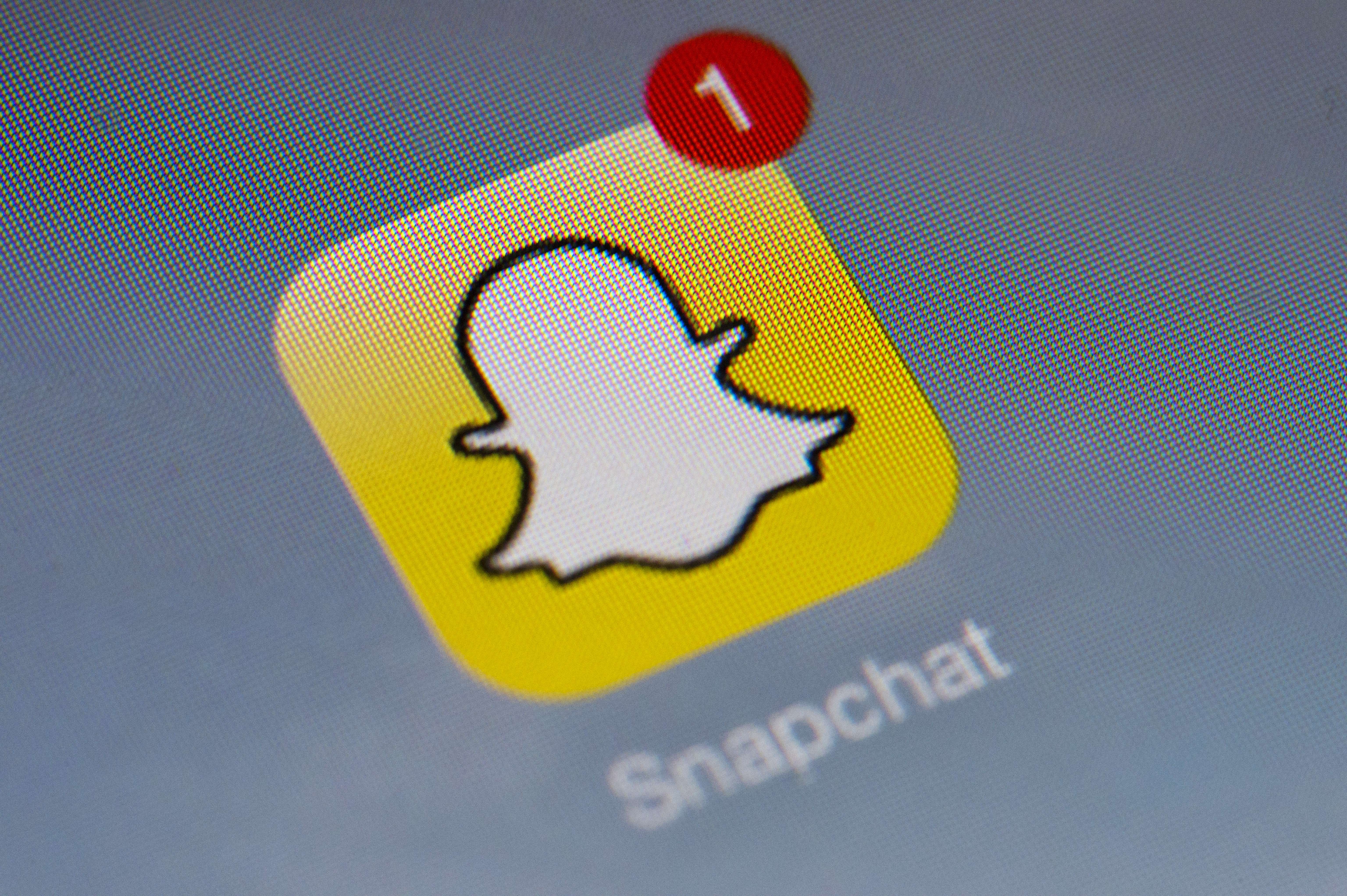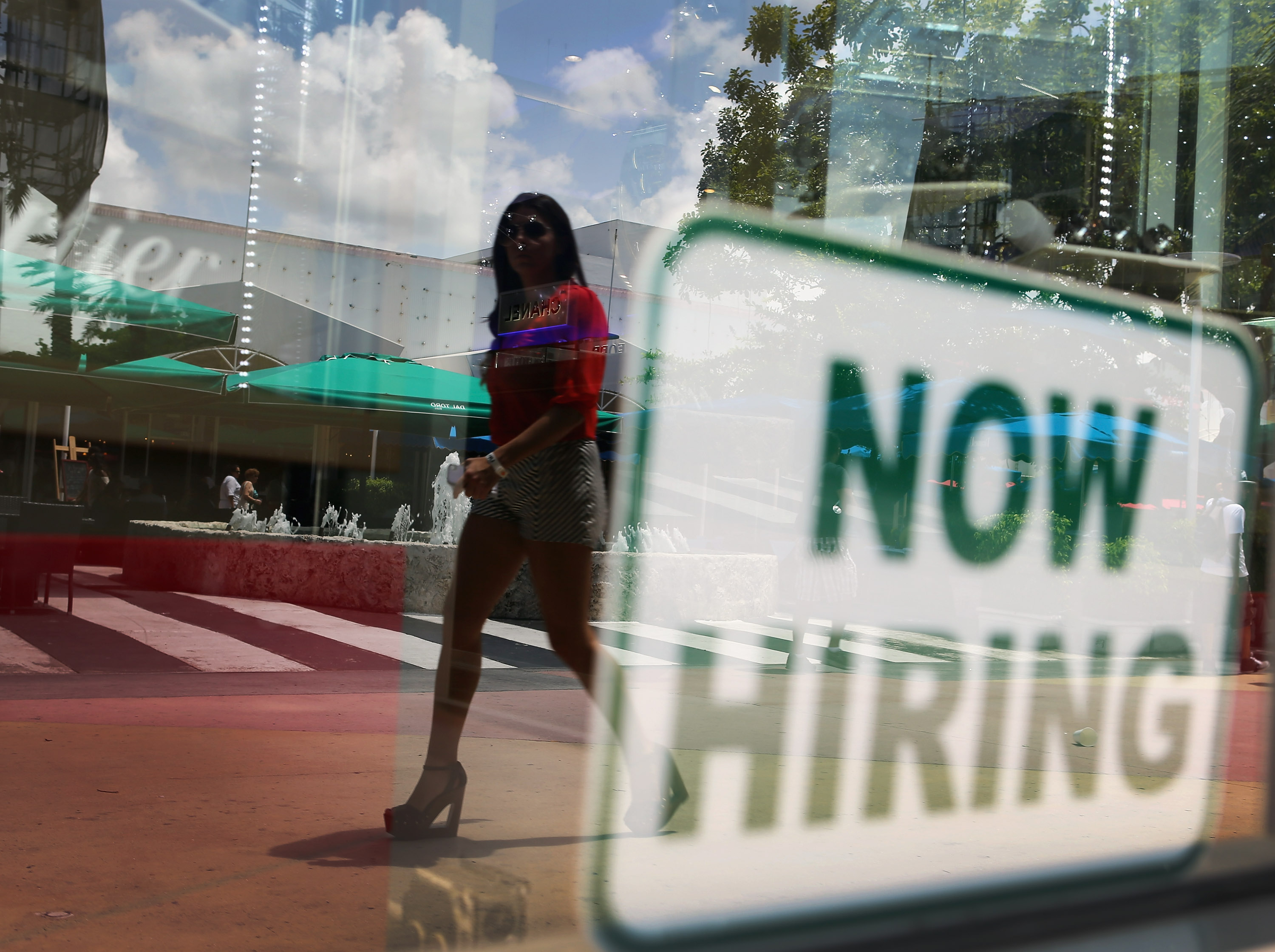The daily business briefing: October 7, 2016
The economy adds 156,000 jobs in September, potential Snapchat IPO could value the company at $25 billion, and more


- 1. Economy adds a healthy but lower-than-expected 156,000 jobs
- 2. Snapchat IPO in the works would value company at $25 billion
- 3. British pound plunges, then partially recovers, on rising Brexit fears
- 4. Mars buys Warren Buffett's stake in Wrigley, taking full control
- 5. Samsung memory-chip sales offset Galaxy Note 7 recall costs
A free daily email with the biggest news stories of the day – and the best features from TheWeek.com
You are now subscribed
Your newsletter sign-up was successful
1. Economy adds a healthy but lower-than-expected 156,000 jobs

The Labor Department reported Friday that the economy added 156,000 jobs in September, falling slightly below expectations but adding to recent evidence that the jobs market is solid. Economists had predicted payrolls to increase by about 172,000, just under the 2016 average of 180,000 per month. Unemployment ticked up to 5 percent — analysts had expected it to stay put at 4.9 percent — as more Americans returned to the labor market. The news came a day after the Labor Department said U.S. jobless claims fell last week to nearly their lowest level since 1973. In the week of Sept. 25 to Oct. 1, 249,000 Americans filed for unemployment benefits for the first time, fewer than expected and down 5,000 from the previous week. Together, the reports were not expected to alter expectations that the Federal Reserve will decide the economy is healthy enough to raise interest rates soon.
2. Snapchat IPO in the works would value company at $25 billion
Snapchat parent company Snap Inc. is preparing an initial public offering of stock that would value the popular disappearing-message service at $25 billion or more. That would amount to a significant step up from its valuation of $17.8 billion in its last funding round in May. If it pans out, Snap will be the biggest company to go public on a U.S. exchange since 2014. The company hopes to sell shares as early as late March, although there is no guarantee it will meet that timeline.
The Week
Escape your echo chamber. Get the facts behind the news, plus analysis from multiple perspectives.

Sign up for The Week's Free Newsletters
From our morning news briefing to a weekly Good News Newsletter, get the best of The Week delivered directly to your inbox.
From our morning news briefing to a weekly Good News Newsletter, get the best of The Week delivered directly to your inbox.
The Wall Street Journal Barron's
3. British pound plunges, then partially recovers, on rising Brexit fears
The British pound briefly plunged by nearly 10 percent early Friday before recovering most of its losses, which came as fears of a hard Brexit intensified. Sterling dropped from $1.2600 to $1.1378 in a flash crash in Asia in a wave of selling that pushed it under key support levels. "I initially doubted what I saw on my screen," said Mizuho Securities foreign exchange strategist Kenji Yoshii. The currency quickly regained ground, but remained down by about 3 percent against the dollar late morning in Britain at the end of an already bad week. "This was even a bigger move than what we saw after the Brexit vote," said a trader at a European bank in Tokyo.
Reuters The Wall Street Journal
4. Mars buys Warren Buffett's stake in Wrigley, taking full control
Mars, maker of M&Ms and Snickers bars, on Thursday decided to buy the 20 percent stake in Wrigley owned by billionaire Warren Buffett's Berkshire Hathaway. The deal will give Mars full control so it can turn Wrigley into a subsidiary. Berkshire acquired its stake in Wrigley for $2.1 billion in 2008 when it helped Mars pull off its $23 billion takeover of the chewing gum manufacturer. Buffett's company also lent Mars $4.4 billion, which has been repaid.
A free daily email with the biggest news stories of the day – and the best features from TheWeek.com
5. Samsung memory-chip sales offset Galaxy Note 7 recall costs
Samsung Electronics shares rose early Friday after the South Korean company posted quarterly operating profit that beat analysts' expectations. Operating income rose by 5.5 percent to 7.8 trillion won ($7 billion), beating estimates of 7.58 trillion won. The company's strong numbers came as demand for its high-margin memory chips and displays offset the impact of a massive recall of Samsung's new Galaxy Note 7 smartphones. "The recall-related costs have surely taken its toll on its mobile business in the quarter but its other businesses, particularly semiconductors, have fared extraordinarily well," said Lee Seung-woo, an analyst at IBK Securities Co. in Seoul.
Harold Maass is a contributing editor at The Week. He has been writing for The Week since the 2001 debut of the U.S. print edition and served as editor of TheWeek.com when it launched in 2008. Harold started his career as a newspaper reporter in South Florida and Haiti. He has previously worked for a variety of news outlets, including The Miami Herald, ABC News and Fox News, and for several years wrote a daily roundup of financial news for The Week and Yahoo Finance.
-
 Can the UK take any more rain?
Can the UK take any more rain?Today’s Big Question An Atlantic jet stream is ‘stuck’ over British skies, leading to ‘biblical’ downpours and more than 40 consecutive days of rain in some areas
-
 The UK expands its Hong Kong visa scheme
The UK expands its Hong Kong visa schemeThe Explainer Around 26,000 additional arrivals expected in the UK as government widens eligibility in response to crackdown on rights in former colony
-
 One great cookbook: Joshua McFadden’s ‘Six Seasons of Pasta’
One great cookbook: Joshua McFadden’s ‘Six Seasons of Pasta’the week recommends The pasta you know and love. But ever so much better.
-
 Epstein files topple law CEO, roil UK government
Epstein files topple law CEO, roil UK governmentSpeed Read Peter Mandelson, Britain’s former ambassador to the US, is caught up in the scandal
-
 Iran and US prepare to meet after skirmishes
Iran and US prepare to meet after skirmishesSpeed Read The incident comes amid heightened tensions in the Middle East
-
 Israel retrieves final hostage’s body from Gaza
Israel retrieves final hostage’s body from GazaSpeed Read The 24-year-old police officer was killed during the initial Hamas attack
-
 China’s Xi targets top general in growing purge
China’s Xi targets top general in growing purgeSpeed Read Zhang Youxia is being investigated over ‘grave violations’ of the law
-
 Panama and Canada are negotiating over a crucial copper mine
Panama and Canada are negotiating over a crucial copper mineIn the Spotlight Panama is set to make a final decision on the mine this summer
-
 Why Greenland’s natural resources are nearly impossible to mine
Why Greenland’s natural resources are nearly impossible to mineThe Explainer The country’s natural landscape makes the task extremely difficult
-
 Iran cuts internet as protests escalate
Iran cuts internet as protests escalateSpeed Reada Government buildings across the country have been set on fire
-
 US nabs ‘shadow’ tanker claimed by Russia
US nabs ‘shadow’ tanker claimed by RussiaSpeed Read The ship was one of two vessels seized by the US military
